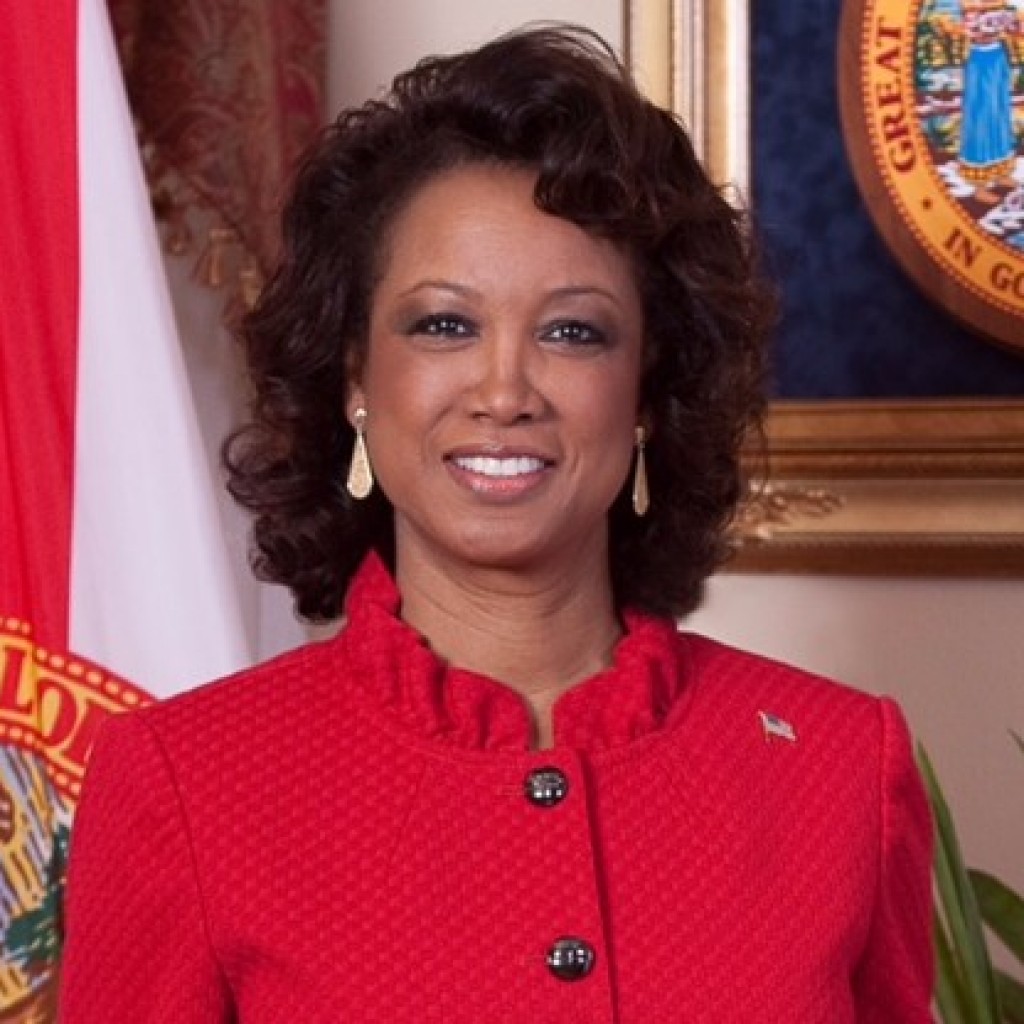
At the Voting Rights Act celebration in Jacksonville on Thursday, former Lieutenant Governor Jennifer Carroll was one of the fourteen Jacksonville black women who were honored as trailblazers in the political realm.
Carroll, who is now a political analyst for WJXT-TV in Jacksonville, spoke with Florida Politics by phone on Friday about a wide range of topics.
Regarding the event itself, Carroll described it as “very educational and informative,” especially in terms of introducing young people to the sacrifices made to attain the “rights and freedom” that today are often considered a matter of course.
Carroll, along with the other honorees who are still alive (a few have passed on), had statements that were recorded for a video. Her statements were truncated, I noticed.
“They tape a lot, and splice it together,” Carroll observed.
Her full remarks covered various civil rights issues, especially the penal system, in which “black Americans disproportionately are incarcerated.”
That, coupled with educational and economic inequities, are “still plaguing the black community of this century.”
The prison system is especially of concern to the former Lieutenant Governor, as “with a privatized system, there is a benefit to increasing incarceration.” She advocates civil citations, which would “have citizens be more productive,” and laments the lack of rehabilitation measures for repeat offenders.
“Rehabilitation goes out the window,” Carroll said.
In February, she related, she was “invited to speak [for] Black History Month at a correctional institution in Lake City.” While there, she asked a fundamental question.
“What’s in place to help people succeed?”
Education and training are historical footnotes, and, she says, “a lot of prison systems have done away with vocational training.”
Carroll, of course, came to prominence in Northeast Florida during her two unsuccessful runs against Representative Corrine Brown, who was also honored at the Thursday event.
When asked about the topic of the day, Brown’s lawsuit against the latest attempt at remapping the district, Carroll didn’t hold back.
She “expected that [Brown] would file a lawsuit because she had a protected seat, made more secure” by Republicans. Even though the proposed map has a roughly even split between blacks and whites, that expectation held.
That said, Carroll added that Brown “still has a safe Democratic seat, but she wants to be more safe than sorry” as “white Democrats out west tend to be more conservative” and “going out west may challenge her.”
I asked Carroll how she would deal with that challenge, if she were Corrine Brown.
“She will need to go directly to them,” referring to “Democrats she has not touched or spoken to.”
“It’s going to take more work than just saying Corrine Delivers.”
Brown is going to have to learn a new political calculus, Carroll adds, as the Congresswoman has historically been “more concentrated on urban areas, so she didn’t have to go into rural areas.”
That will be a challenge for Brown, Carroll adds, as she learns to deal with agricultural issues, as well as economic development for places that haven’t had much.
“Many rural areas haven’t seen large businesses come,” she says, “other than a prison.”
Another topic that came up: Dr. Marcela Washington’s remarks at the event on Thursday.
Did the FSCJ professor go too far in castigating the GOP? Carroll doesn’t think so.
“Texas courts,” she said, recently “struck down a Voter ID law saying that it violated the Voting Rights Act,” saying that it showed that Texas Republicans “tried to suppress voters.”
Not everyone, she adds, has an ID card, and in some cases it can take considerable time to get one.
“We don’t see the plight,” Carroll said, “created by some of these requirements.”
“Republicans need to be mindful,” Carroll added, “regarding how that looks to others who might have” dealt with real discrimination.
Carroll was “honored to be recognized” at the event.
“I have always been one of one,” she said, “the first female, the first black” throughout her professional career.
She appreciates having been able to “come in and try to make a difference” on the “pathway I was able to create for others.”
Despite being the first so often in her career, she recognizes that “had it not been for Mary Singleton” and other trailblazers, she would not have had the opportunities that she has had.



